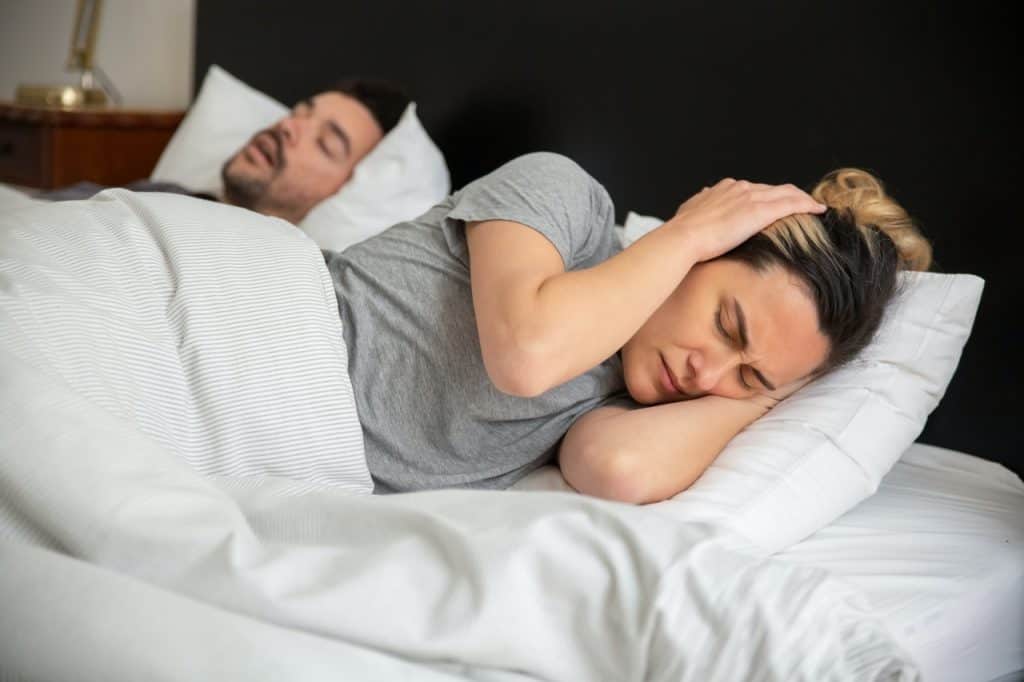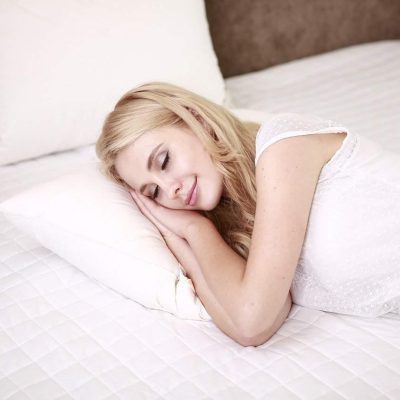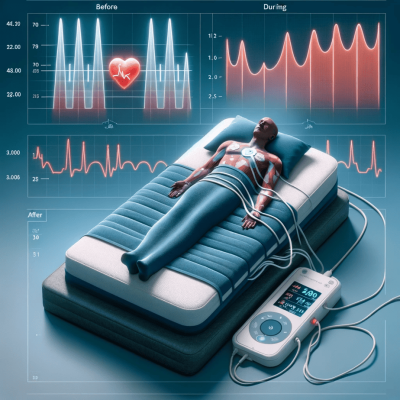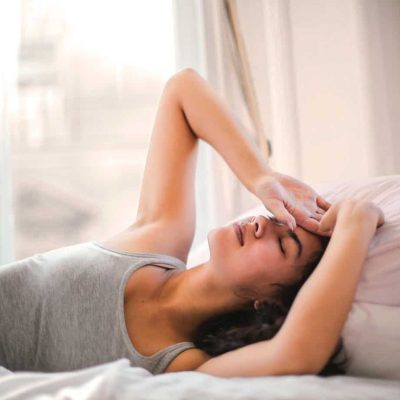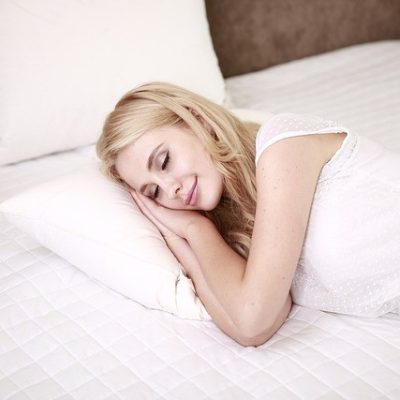CPAP treatment is used to help people with sleep apnea. Sleep apnea causes the person to stop breathing while they are sleeping, because of this, their oxygen levels drop which makes them jolt awake.
Snoring happens when you are sleeping and there is a build-up of mucus or soft tissues in the throat that vibrates as you breathe. Snoring can be stopped by using a cpap machine, because it holds your lower jaw forward which prevents soft tissues from blocking the airway. This article explores if snoring will stop when you use a cpap machine.
Table of Contents
ToggleIs CPAP therapy effective at reducing or eliminating snoring?
Yes, in the vast majority of cases. Snoring while using a CPAP machine is not typical. If you’re still snoring after many days of using your CPAP mask, consult a sleep specialist. Talk to them about your machine and mask brand to see if there are any adjustments that can be made. Adjusting your CPAP settings on your own is not a good idea.
CPAP works by giving a constant positive airway pressure to your airways throughout the night to keep them open. They are able to prevent the soft tissues from clogging your throat and rubbing together, resulting in loud snores, in this way. As a result, your sleep isn’t disrupted, allowing you to get a restful night’s sleep.
A CPAP’s? continuous positive airway pressure keepa the throat fully open throughout the night, reducing or eliminating snoring by preventing “apneic” occurrences (breathing stoppages).
Why snoring shouldn?t be ignored
Snoring is not only a problem; it can also be an early sign of sleep apnea, which can lead to a variety of long-term health issues. OSA has been related to heart attack, stroke, diabetes, chronic fatigue, daytime drowsiness, and sleepy driving, among other things. Snoring can also throw off the natural sleep cycle, causing snorers and their bed companions to be drowsy during the day.
Snoring due to sleep apnea
People who snore are far more likely to develop thickening of their carotid artery, a condition known as atherosclerosis, according to a recent study conducted at Henry Ford Hospital in Detroit. Thickening of these arteries can significantly reduce blood flow to the brain, weakening artery walls and raising the risk of an aneurysm or stroke.
Although there are a variety of remedies available to help with minor snoring, sufferers should first seek medical advice. If sleep apnea is present during sleep, a simple sleep study can quickly establish this. Furthermore, this will aid in determining whether the condition is mild or chronic, as well as the most likely causes and treatment options. The initial diagnosis will also reflect whether additional sleep testing are required to determine if the person has OSA. What about the person who snores but does not have OSA? So, what can you do to stop snoring?
A few tips to improve snoring
As outlined snoring is something that shouldn?t be ignored. It affects both your health, and the wellbeing of your partners. Here are a few ideas to help reduce your snores:
- Before going to bed, avoid eating a substantial dinner.
- Instead of sleeping on your back, try sleeping on your side.
- Lose weight and exercise your tongue and throat. We’ve previously discussed the link between fat, snoring, and OSA.
- Alcohol should be avoided for at least four hours before bedtime.
- Raising the head of your bed four inches is a good idea.
- Before going to bed, stay away from things that relax the throat, such as sleeping drugs and antihistamines.
Sleep apnea and snoring aren’t exclusive, although they go hand in hand. There are many people who snore but don’t have sleep apnea, and the opposite is true as well.
If you’re worried about having sleep apnea, please do ensure that you speak with a medical expert who knows about this condition.
Which CPAP mask is best for snoring?
Being able to use high pressures mask is great for persons with severe sleep apnea due to its ability to employ high pressures. A full-face mask has a propensity to loosen over the night due to its extra weight, especially if you are a restless sleeper.
How does a CPAP machine stop snoring?
A CPAP machine pushes a stream of air into the back of the throat, making it easier to breathe. It keeps the muscles at the back of the throat from contracting, which can narrow the airway and cause snoring or sleep disturbances.
How many hours per night should CPAP be used?
If you’re asking, “How many hours should CPAP be worn per night?” The answer is that you should sleep for the full night, ideally 7+ hours. CPAP compliance assesses how many hours and nights you use your therapy, as well as whether you use it frequently enough to be effective.
Can sleep apnea snoring be cured?
Most people with sleep apnea will need to seek treatment that helps keep the airway open while they sleep, in addition to making lifestyle modifications. Continuous positive airway pressure, or CPAP, therapy is currently the most effective treatment for mild to severe sleep apnea.

